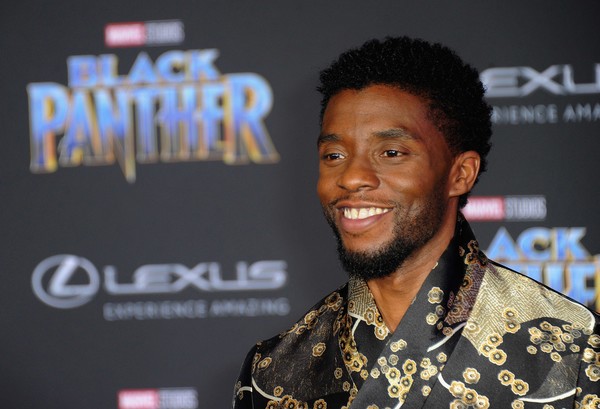The death of Chadwick Boseman sent shock waves across the globe when it was announced on the morning of August 28. The actor passed at the age of 43 after battling colon cancer for four years. Thousands of posts and messages flooded the internet as people grieved and said farewell — a testament to his deep cultural impact. It was a devastating loss for his fans, particularly for Black people from Africa, the United States, and all over the world. Chadwick was an inspiration for the generation. He played the role of several historical figures, such as Thurgood Marshall in Marshall, Jackie Robinson in 42, and James Brown in Get on Up. However, his most memorable performance came in his role as Black Panther in the 2018 blockbuster, embodying arguably the most iconic African character in movie history.

Black Panther was a true celebration of African culture. It is too often that African culture is stereotyped and oversimplified in media, from news to movies. Such depictions had left very little room for Africa to be seen as anything other than a backwards and disordered place. That is why Wakanda, the Vibranium-powered metropolitan city with immensely advanced technology, ultramodern skyscrapers, and massive spaceships, was such a huge reminder of the possibilities for African countries beyond the stereotypical media representation. In addition, Chadwick and Black Panther have helped normalize the culture and style of Africa, since the movie beautifully represented the cultural attire, dance, and heritage of the continent. Recently, these can be seen in not just in the movies; we see them in the African fabrics worn on red carpets, the increasing number of artists doing collaborations with African musicians — such as Beyoncé’s visual album ‘Black is King’, or the rise and popularity of Afro beat music.
The movie was a huge success in Africa. Audiences went to the cinema in cultural outfits and left dancing, singing, and feeling overwhelmed. I remember the Monday afternoon I, along with some friends, went to see Black Panther. Weirdly enough, I hadn’t even checked the trailer for the movie everyone was buzzing about. Having heard of the release of the movie only a few weeks prior, I easily assumed that it was going to be a mediocre Marvel attempt to introduce a westernized black superhero. I could not have been more wrong. To this day I have never seen a more pumped-up audience and never had a better cinema experience. The crowd was buzzing; I could see the people jamming to Kendrick Lamar’s amazing tracks. However, the excitement goes deeper than the quality of the movie.
Black Panther the movie successfully broke away from the typical Hollywood films centered on white characters. For a long time, movies that did not portray whiteness as the default have not gotten the support needed to go mainstream. Western film business has always been a tough place for people of color. Representation of people of color has always been lacking in the media, and when it is there, it rarely shows their multifaceted nature. There are countless occasions that show western media’s addiction of presenting a very narrow glimpse into Black lives. Movies that tell the stories of Black people usually revolve around racial injustice — with plots involving the civil rights movement period, slavery, and inner-city gangs being prime examples. It was as if the Black experience Hollywood was trying to show were those that conformed to their views. Recently, this trend seems to be changing, after the success of Black Panther proved that movies that centered around people of color can be equally — or even more — successful and profitable.
The movie has also given an answer to the positive media representation that people of color have been asking for. The movie also doesn’t dodge topics such as race and identity, but confronts them head-on. Seeking representation means more than merely being seen on the cinema screen — it is to be felt and understood. Black Panther’s significance can be clearly seen here.
A giant tree has fallen. However, the roots that Chadwick has sown in his career are so deep that leaves are bound to sprout. As King T'Challa’s famous line in Black Panther goes: "In my culture, death is not the end". And so, his legacy of shining light on Black history and culture continues. Rest in power, Chadwick.

